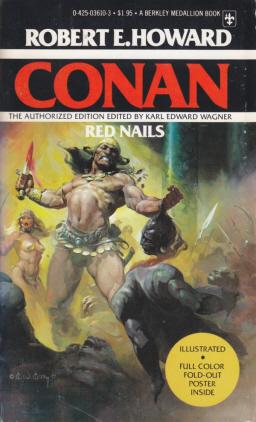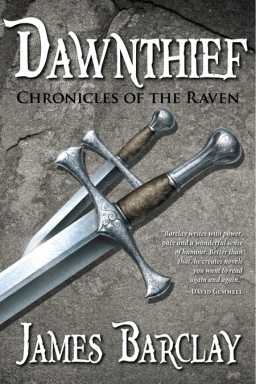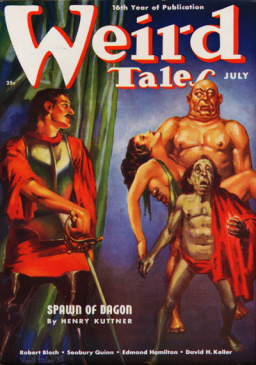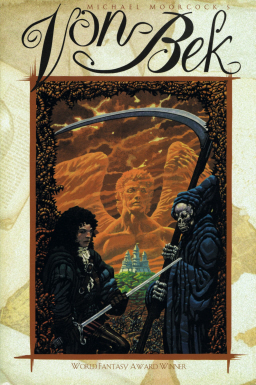Seductive Sorceress Queens, Decadent Civilizations, and Moon-lit Brawls: A Review of Bloodstone by Karl Edward Wagner
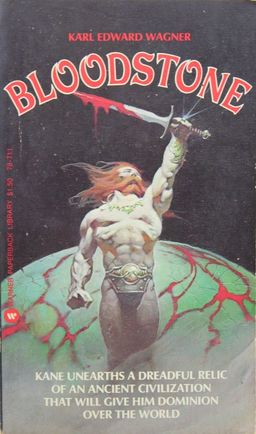 I love used book shops. And when I say love, I damn well mean love; anything that offers me a Kane Book for less than a pound is pretty much saying ‘I do’ in my book. You just can’t buy that kind of passion, unless you happen to offer me a Kane book for under a…. oh, never mind!
I love used book shops. And when I say love, I damn well mean love; anything that offers me a Kane Book for less than a pound is pretty much saying ‘I do’ in my book. You just can’t buy that kind of passion, unless you happen to offer me a Kane book for under a…. oh, never mind!
Now, if you’re a bit of a fantasy connoisseur (and if you’re reading this you probably are) you’ve likely heard of Kane, or at least Karl Edward Wagner; the guy’s novels sell for an arm and a leg on Amazon and are showered with praise at every turn. So you can understand my excitement upon finding the book, and my anticipation when I opened it up.
The story follows Kane as he stumbles upon an intriguing ring during a raid. His interest piqued, Kane investigates further and finds that it is actually linked to a legendary giant gem named ‘Bloodstone’ which would, apparently, look really nice in his front garden. Needless to say Kane decides to look for it, and his search leads him to an ancient city somewhere in a forest, one that serves as a kind of no man’s land for two warring leaders: Malchion, and Dribeck.
What follows is some seriously top-notch sword and sorcery; the first few chapters are brilliant, filled to the brim with Gothic imagery and seductive sorceress queens, decadent civilizations, moon-lit brawls with lurid beasts; all the good stuff that made me fall in love with the genre. It’s got everything: mysticism, super-science, monsters, a lost city, and an ancient civilization.
And the first couple of skirmishes with a race of lizard men, the Rillyti, (who happen to be the very same lizard men who made Bloodstone) are all excellently done, filled with a real unpredictability, and a truly tangible sense of danger. It really reads like something you’d find in the pages of Weird Tales, alongside the latest Conan tale, or Solomon Kane’s newest yarn.
And it’s great fun. The kind that is a lot harder to find today (a few exceptions aside). At this stage, the thunder in its pacing was audible, the weight of its sword blows palpable, the dirt and grit and grime of its world was seeping into the room. And I loved every moment.
So why, Mr Wagner, why oh why, did you slow it down?
